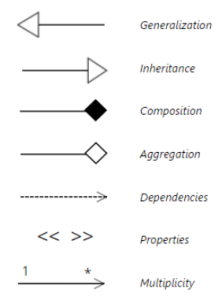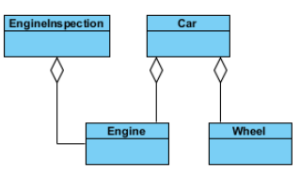The cognitive complexity definition is how capable people perceive things in their world. It also describes the number of cognitive processes required to complete a task. Things that are complicated to perform have more processes involved than simple tasks.
Making a sandwich, for example, is a simpler task than writing a term paper. Many more cognitive processes are involved in writing the paper, such as using online resources, doing effective research, and writing within a specific style and tone. Cognitive complexity can also help individuals analyze situations more accurately by allowing them to see shades of nuance and meaning more clearly. The core determining factor in the complexity of an individual’s cognition is their life experience and education. Exposure to complex situations, either through life experience or education and training, allows individuals to form mental constructs.
Expounding upon this theory of what is cognitive complexity is the personal construct theory, which states that individuals interpret the world through mental constructs. These constructs serve as shortcuts, aiding individuals in quickly analyzing situations and tasks. For example, someone could color-code their notebooks to make it easy to identify which notebooks are for which subjects, rather than sifting through multiples of the same color notebook. Mental constructs make it easier to solve complex problems by breaking down parts of the problem-solving process into automatic processes.
Cognitive complexity is also used in computer programming to help software engineers describe units of code. Cognitive complexity, in this sense, is how difficult it is to understand a unit of code in a program. Some functions and classes are straightforward and are easy to understand, while there are those with multiple parts with several logic breaks and references to other files that make it difficult to follow. Complex code is generally more prone to bugs because there are more areas for things to go wrong when the program is being executed. It also makes it more challenging to write new code that interacts with the old complex code, making rework necessary to simplify the code.
Cognitive Complexity Example
Imagine that there is an individual who is learning how to cook and opens their new cookbook to a recipe they’ve been considering. The recipe calls for several ingredients that they’ve never heard of before. So, they must take the time out to research these ingredients, figure out what they are, and search for them at the store. They also discover that they do not have a pan big enough to cook the meal, so they must also purchase a new pan capable of doing so. Meanwhile, an accomplished chef is making the same recipe. However, because they have more experience, they already know what the recipe calls for and have the ingredients in stock. They also already have the correct pan. The first individual consults the recipe for every step, lengthening the prep and cooking process. The chef knows the recipe by heart, so they get the meal prepped and cooked more quickly. In this cognitive complexity example, the chef has more mental constructs available to them from experience with the dish, resulting in less time spent prepping and cooking. They also know what ingredients do what, so if the flavor is off, they know what to add while the inexperienced individual might not.
Cognitive Complexity Communication
Cognitive complexity in communication refers to the number of psychological constructs an individual might use to describe someone. These psychological constructs generally refer to personality traits, like “energetic” or “caring.” Those who are more perceptive of others tend to use more psychological constructs to describe people. These people have higher interpersonal cognitive complexity, allowing them to notice more details about a person than somebody with less skill. An average individual might describe someone as “friendly,” while the person with higher interpersonal cognitive complexity will notice that they are also giving and self-confident.
Uses of Cognitive Complexity Theory
As mentioned previously, cognitive complexity is a topic that is used in software development to describe how complex a given piece of code is. However, it is also used to design computers that think more as humans do. Computers process information through binary code, or ones and zeroes. They see the program to execute, and they do it. They do not pause for consideration or come up with creative solutions. So, software engineers and scientists are trying to develop ways in which a computer can think more like a human to solve more complex problems. These systems are called artificial intelligence. Artificial intelligence aims to develop computers capable of complex cognitive functions rather than simple functions like memory and perception. Teaching computers to see the nuances in different problems allows them to handle more complex situations in more optimal ways, rather than approaching a problem head-on in the most direct path.
In organizations, cognitive complexity refers to the ability of people to notice patterns in their organization so that they can optimize processes for efficiency. This capability requires seeing the organization in a broad sense and a specific one. Optimizing one part of an organization is a much simpler feat, where there are fewer variables to consider. Optimizing an entire organization requires the ability to see any potential bottlenecks, understand supply and demand, know market trends, and much more. If a company is underperforming, leaders need to be able to recognize why it is happening and come up with solutions to the problem. Cognitive complexity allows people to think outside the box and develop creative solutions.
Read more here



